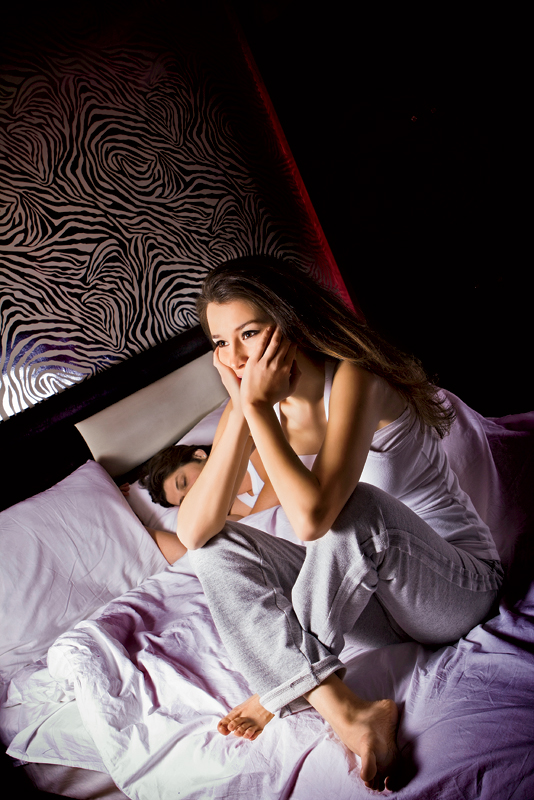Women and Sleep—Simple lifestyle changes for a better night’s rest
By Mary Kay Kleist
May 2013 View more Health & Fitness
 No matter how exhausted they are, many busy moms struggle to fall asleep. Their minds are racing with what they did today and what they need to accomplish tomorrow. Many women wake in the middle of the night and can’t get back to sleep. Some simple lifestyle changes can help put an end to those sleepless nights for moms on the go.
No matter how exhausted they are, many busy moms struggle to fall asleep. Their minds are racing with what they did today and what they need to accomplish tomorrow. Many women wake in the middle of the night and can’t get back to sleep. Some simple lifestyle changes can help put an end to those sleepless nights for moms on the go.
ARE YOU SLEEP DEPRIVED?
If it takes you less than five minutes to fall asleep at night, it means you’re sleep deprived. Ideally, it should take 10 to 15 minutes, meaning you’re still tired enough to sleep deeply, but not so exhausted that you feel sleepy during the day. Irritability, fatigue, and mood changes are all signs of not enough shut-eye. “Short sleep duration, typically less than seven hours, has been associated with higher risk for weight gain and cardiovascular and metabolic disorders, such as high blood pressure and diabetes,” said Dr. Phyllis C. Zee, associate director at the Center for Sleep & Circadian Biology, Northwestern University School of Medicine.
SLEEP BECOMES DIFFICULT WITH AGE
As we age, our circadian clocks, which control our sleep-wake cycle, aren’t as efficient. Older adults often have problems falling asleep, trouble staying asleep, and issues with daytime alertness. Menopause brings its own set of hormone-related sleep challenges for women. In fact, insomnia is common during menopause.
SLEEP QUALITY
The two hours immediately after you fall asleep, and the two hours before you wake up, are the most critical to the quality of your sleep. During that time, noises like thunderstorms, a barking dog, a snoring spouse, or light from your digital alarm clock can be disruptive. Luminous rays from the alarm clock can be enough to disrupt your sleep cycle even if you don’t fully wake up. The light turns off a “neutral switch” in the brain, causing levels of a key sleep chemical to decline within minutes. “Sleep quality is important for physical and mental health,” said Dr. Zee.
NATURAL SLEEPING AIDS
Healthy behaviors during the day and regular exercise help women sleep better. Dr. Zee recommends you avoid caffeine in the late afternoon and evening and limit alcohol within three hours of bedtime. “Get plenty of bright light during the day, particularly in the morning and in the early afternoon. But avoid those exposures to bright light two hours before bedtime,” said Dr. Zee. Reading a book or magazine works well and can act as a sedative as your eyes follow the lines on the page. However, watching color pictures, or moving images like television and video games, stimulate brain activity. This can decrease your ability to fall asleep, and sleep well. A warm bath or shower before bed is also helpful, as it releases your internal body heat.
SLEEP ENVIRONMENT
A cooler room temperature, about 68 degrees, is ideal for sleep. Also, the darker the room, the better you’ll sleep. Dr. Zee says night lights are okay, but avoid blue lights. “Red color is best. The reason is that blue light is the most alerting,” said Dr. Zee.
DON’T FIGHT IT
It’s best to go to sleep and wake up at a regular time. If you don’t go to sleep when you feel drowsy, you may get a second wind, which may delay your sleep ability. And if you wake up in the middle of the night, experts say avoid exposure to light.
- A new baby typically results in 400 to 750 hours of lost sleep for parents in the first year.
- 17 hours of sustained wakefulness leads to a decrease in performance equivalent to a blood alcohol level of .05%.


